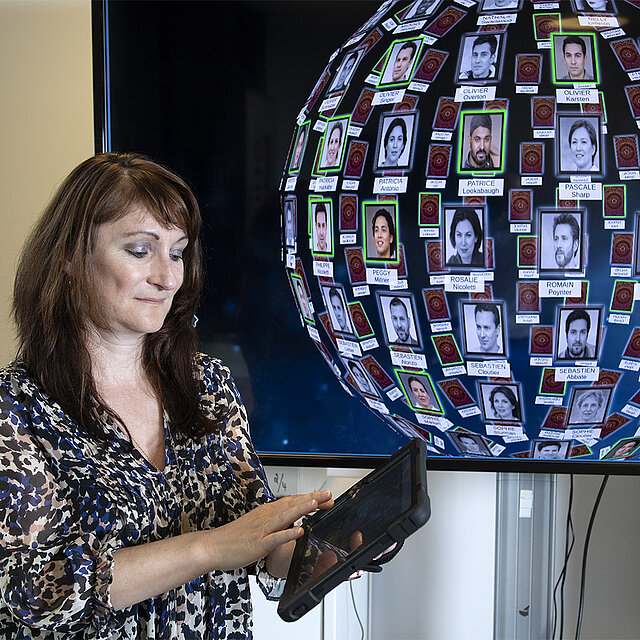Our research
 Digital
Digital
5. Designing state-of-the-art technology solutions to meet digital needs
Success Story #1
Understanding and stopping the spread of fake news
The sharing of misleading information, whether out of context or completely false, and the banding together to coordinate action ("brigading") that accompanies it, alter the quality of the information we receive online, regardless of whether the bad behaviour was intentional.
Through the CON-NET project, LIST uses machine-learning techniques to process large quantities of data with the aim of identifying suspicious trends, signals and behaviour, as well as entities that are behaving badly. This approach is complemented by a visual analysis approach, including the human factor in the loop, in order to provide a context and understand the spread of misinformation online. In this way, we tackle the complexity of social media networks online.
The CON-NET project is funded within the framework of the CHIST-ERA programme and brings together a consortium of partners from all over Europe.
Contact: Fintan Mc Gee
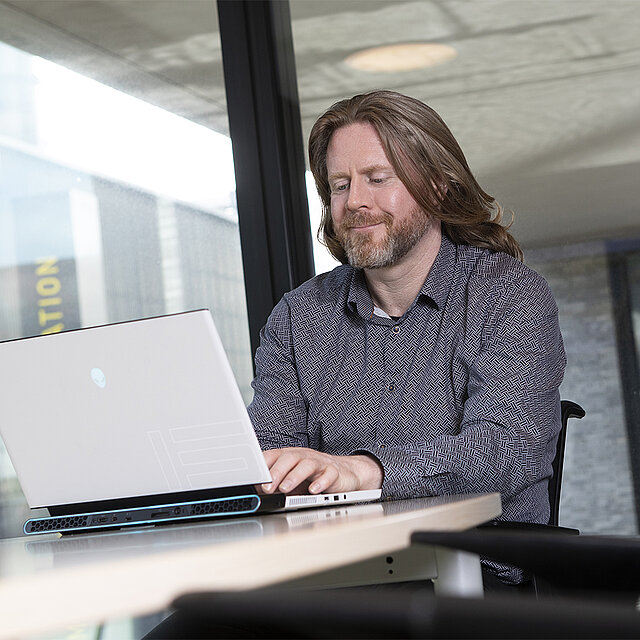
Success Story #2
Creating a knowledge-sharing platform for the space resources community
In May 2022, as part of Space Resources Week, LIST presented the knowledge-sharing platform of the space resources community. This data visualisation tool incorporates nearly 1300 scientific publications. It will be supplemented over time with information, patents, books, press articles, legislative documents and even social media posts. The platform is accessible free of charge to the community involved in space resources upon registration.
This knowledge-sharing platform meets the community's needs and expectations and follows a survey conducted between April and July 2021. The survey revealed the great diversity of stakeholders in the space sector as well as its economic potential, linked to land-based activities such as mining, energy and even construction.
Contact: Louis Deladiennée, Cedric Pruski, Marcos Da Silveira & Emmanuel Scolan
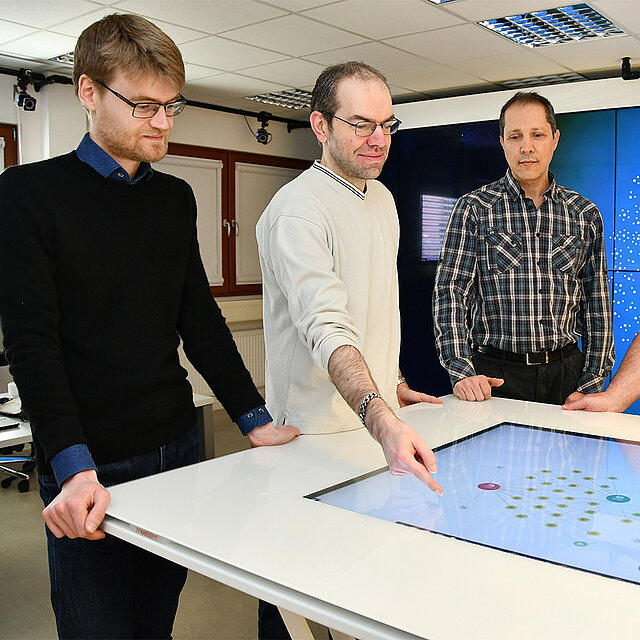
Success Story #3
Developing the human digital twin
A digital twin is a virtual representation of physical systems (traffic, water, air, etc.) and physical assets (buildings, resources, etc.) that can perform simulations, tests and predictions of planned actions almost in real time. A twin is essentially used to obtain information about action in a simulated world before action is taken in the real world, which opens up enormous opportunities for companies, authorities and humans too.
In order to boost research on human digital twins, LIST is involved in two major projects. The first is the HORIZON Europe HealthyW8 project. Coordinated by the Luxembourg Institute of Health (LIH), it aims to promote a healthy lifestyle by using customised intervention portfolios with a view to preventing and controlling obesity during vulnerable stages of life.
The second is a project carried out in an association between the National Research Agency (ANR) in France and the National Research Fund (FNR) in Luxembourg. Named "AI for Cognitive Cyber-Physical Systems" (AI4C2PS) and coordinated by Université de Lorraine (CRAM), it operates the digital twin concept in a decentralised way where each cyber-physical (CPS) and human system is twinned. The objective is to achieve an effective collaboration between man and machine by incorporating a cognitive level to promote an understanding and learning of one other's behaviour so as to adapt and respond accordingly.
Contact: Benjamin Gateau
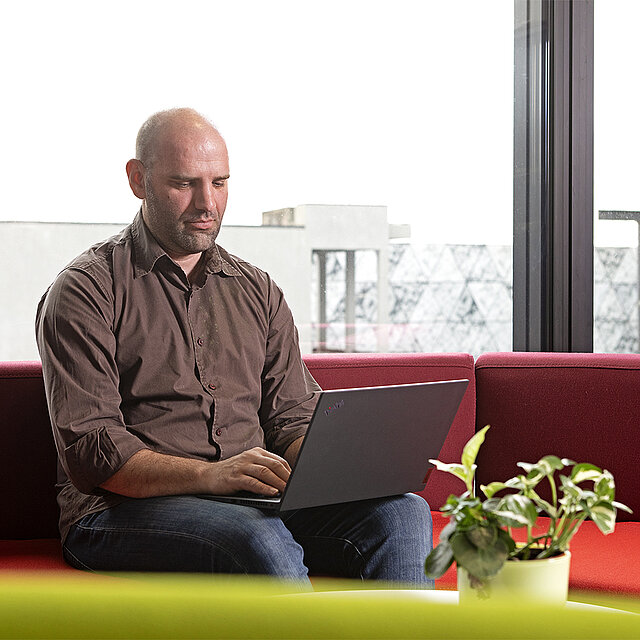
- Success Story #1
- Success Story #2
- Success Story #3
6. Designing the next generation of interconnected digital systems
Success Story #1
Designing a learning solution to detect anomalies in telecommunications networks
In close collaboration with POST within the framework of the Secure5GeXP project, LIST has developed a semi-supervised solution based on deep learning methods to enable the detection of anomalies in the central telecommunications network. The solution was validated with private data from POST as well as with simulated data created by LIST on the basis of an open-source simulator. POST continues to validate the solution before it is put into production.
The flagship field of research and innovation combining machine learning and cybersecurity was also boosted by the launch of the Horizon Europe LAZARUS project. It aims to solve many of the security problems faced by modern software during its development cycle.
Contact: Qiang Tang
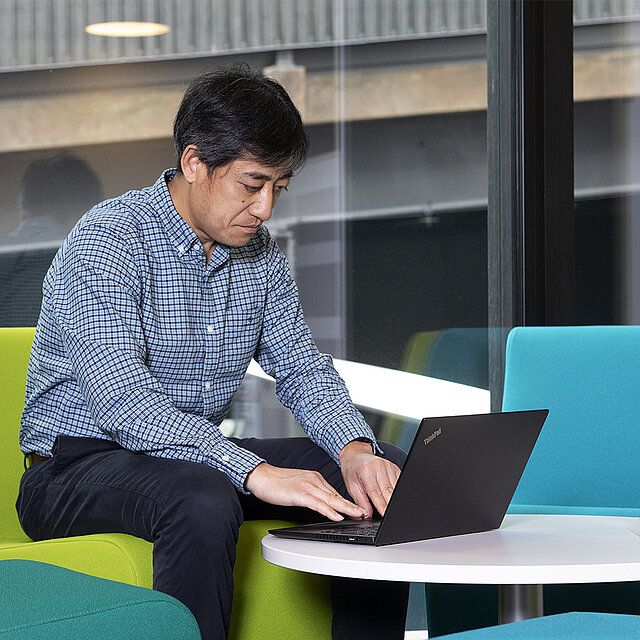
Success Story #2
Boosting connected and autonomous mobility
LIST's activities in the field of connected and autonomous mobility produced successful results in 2022. Three projects were accepted for funding, the first by the European Commission (Horizon Europe) and the other two by the FNR (FNR BRIDGES and INTER ANR-FNR). These projects are at the interface between the world of network communications and mobility, facing very specific constraints and drawing on cross-disciplinary expertise from the IT for Innovative Services department, particularly concerning the digital twin.
During the year, other projects were carried out, in particular 5G-MOBIX (Horizon Europe) and PASCAL (Horizon Europe), both of which were designed to experiment with and test the limits of connected and autonomous mobility services in the future. The PASCAL project, coordinated by LIST and funded by the European Commission, aims, for example, to assess to what extent European citizens accept future connected and autonomous vehicles and does this by means of an interdisciplinary approach combining innovative tools in human and technological sciences.
Contacts: Pascal Lhoas and Ion Turcanu
More information:

Success Story #3
Tracking the transport of hazardous products through blockchain
LIST has developed several applications that allow the innovative use of blockchain, in particular the transport of hazardous goods in cross-border scenarios.
Within the framework of the DG-Sec project, funded by Erasmus+, LIST has worked on using blockchain and connected objects (IoT) to track the transport of hazardous products. We have a web-based simulation interface, which interacts with intelligent contracts on two different blockchain technologies, with the aim of storing the different stages of transport in transactions.
Contacts:Thierry Grandjean, Damien Nicolas & Oussema Gharsallaoui
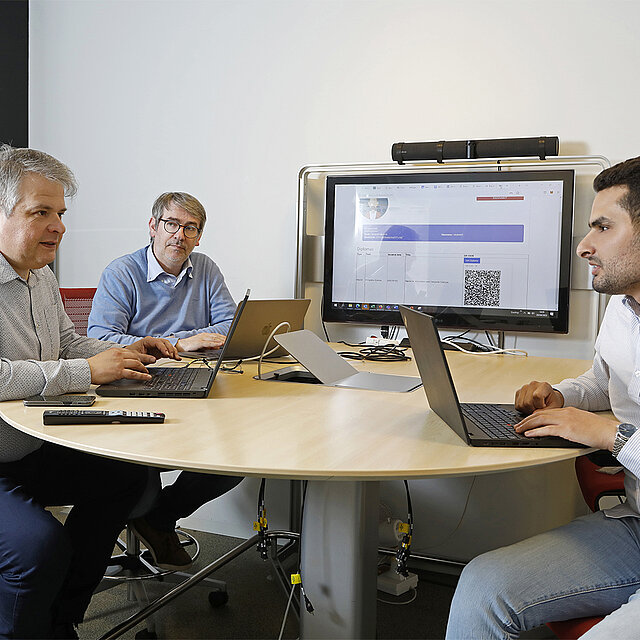
Success Story #4
Serving renewable energy communities, thanks to WeShareEnergy software
LIST has developed "We Share Energy", a multi-platform simulation software designed to serve renewable energy communities as part of a collaborative project with the Luxembourg Regulatory Institute (ILR) called Smart Electricity.
Part of this project was to develop an energy community simulator. Under the impetus of the European Union, the Member States must allow citizens to form "energy communities", i.e. to meet as a group of electricity consumers and producers and exchange their electricity to reduce each member's consumption.
WeShareEnergy is therefore a tool enabling every Luxembourg citizen to simulate such an energy community and to see its benefits according to the members invited, the electricity-sharing rules and each member's behaviour. These energy communities will play a significant role in the great challenge posed by the energy transition in the future.
Contact: Jocelyn Aubert

- Success Story #1
- Success Story #2
- Success Story #3
- Success Story #4
Our Innovations
5G: opening up a range of new possibilities
Success Story
Explaining 5G and demonstrating its potential in Luxembourg
Thanks to the 5G-PLANET project, regular major communication exercises were carried out by LIST throughout the year. Funded by the Luxembourg government's media, connectivity and digital policy department (SMC), this project has led to major dissemination activities. In particular, it has led to the development of three demonstrators, which are all based on technologies used by LIST in its mobile network research and development activities. The 5G-PLANET project also made it possible to raise public awareness using the digital twin concept, in other words by recreating a digital copy of part of Luxembourg's 5G infrastructure, which was then used to demonstrate the potential of 5G in Luxembourg.
Important partnerships have also been formed, in particular with Telindus, which has signed a collaboration agreement to further stimulate the development of business. These initiatives are in line with the digital innovation hub's overall approach and help to convey a positive message: research and innovation as a means of testing and understanding before investing!
Contact: Sébastien Faye
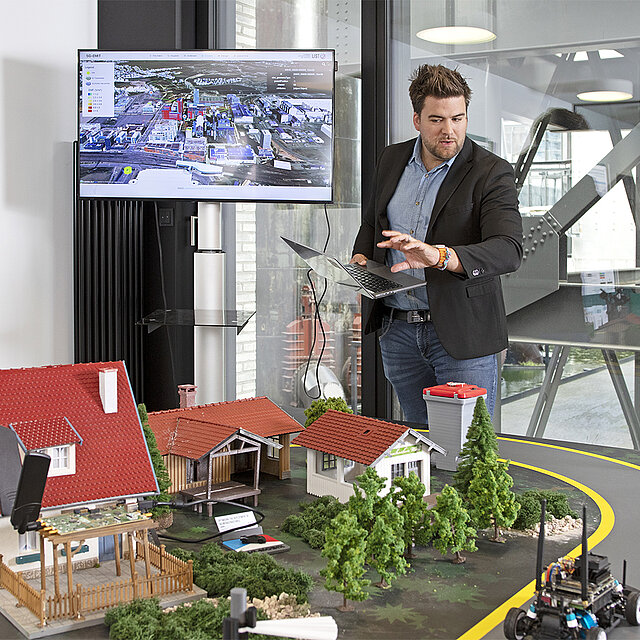
Digital upskilling: preparing the labour market for the skills of tomorrow
Success Story
Creating a dynamic between technology and skills in the labour market
The FNR Initiate UPSKILL project, coordinated by the Luxembourg Institute of Socio-Economic Research, is at the intersection of a threefold challenge: the necessary green transition, the competitive and socially harmonious digital transformation of the economy and the adequate and proactive upskilling and retraining of the workforce. This project contributes to cutting-edge research and provides practical solutions to promote responsible and sustainable development for Luxembourg.
This project responds to an urgent need for knowledge about the dynamic between technological innovation and skills in the Luxembourg and European labour markets. In order to close this gap, decision-makers must have tools in place to enable them to meet the challenges regarding employment and skills. The future Skills Observatory platform will provide up-to-date information on skill requirements as well as tools and strategies to increase the benefits and adaptability of the labour market.
In addition, the Skills Observatory will provide guidance to political decision-makers and stakeholders in the development of programmes for vocational education, development and retraining for job applicants and the workforce in general, with the aim of pre-empting the skills deficit, supporting economic groups and preventing unemployment. By 2024, UPSKILL aims to launch a new National Centre of Excellence in Research (NCER) to meet the challenges identified with all the stakeholders involved in Luxembourg and in the Greater Region.
Contact: Marie Gallais
